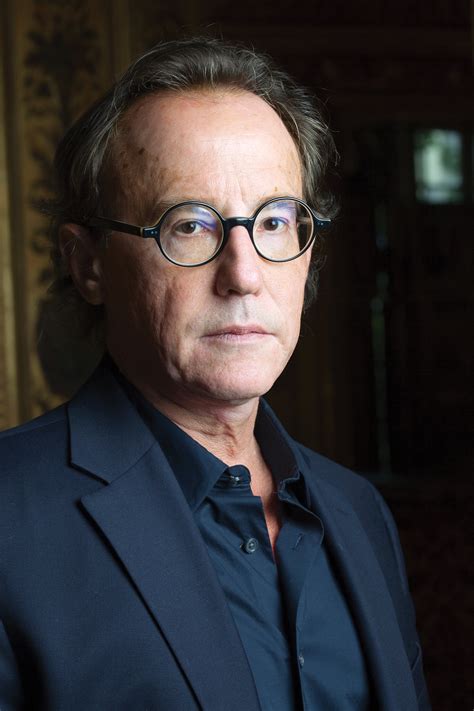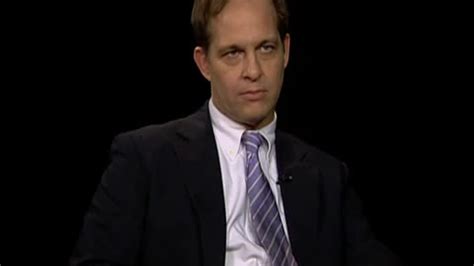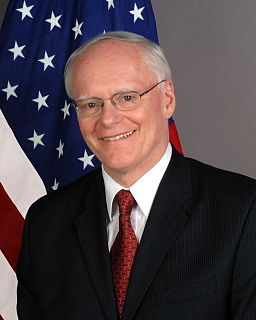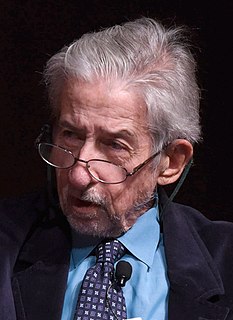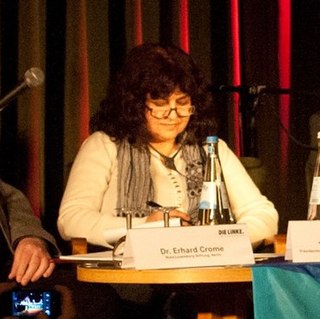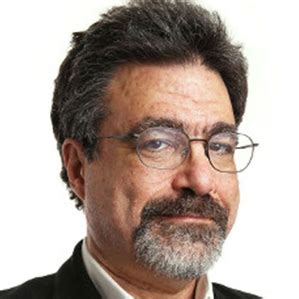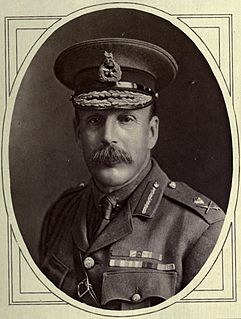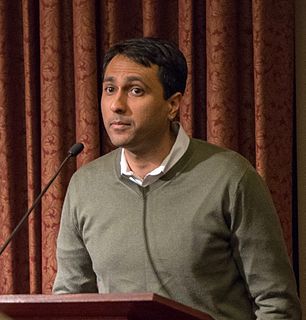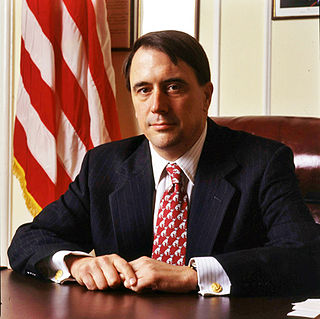Top 174 Baghdad Quotes & Sayings - Page 3
Explore popular Baghdad quotes.
Last updated on December 11, 2024.
The great majority of Baghdad is a slum - a lot of it's new, but it's still slum. It's usually this concrete-block, one-room design with a door and a window, arranged one-up, one-down, often with a shop with nothing in it on the first floor, and then a one-room apartment above it. There's street after street after street of that stuff.
No one can know how long this dumbing-down of American religion will persist. But so long as it does, citizens should probably be more vigilant about policing the public square, not less so. . . . [Y]ou cannot sustain liberal democracy without cultivating liberal habits of mind among religious believers. That remains true today, both in Baghdad and in Baton Rouge.
Kurdish autonomous region of Iraq is clearly a 'client' state of the West, of Turkey and to some extent, Israel. It is shamelessly capitalist, taking land from its own people, cheating them, just in order to pump and refine huge quantities of oil. It treats Syrian refugees like animals, forcing them to make anti-Assad statements. It is turning ancient Erbil into some bizarre shopping mall with nothing public in sight. Its military top brass is mainly US/UK-trained and indoctrinated. And it provokes Baghdad, day and night.
The 'Desert' sweeps up to the walls of Baghdad, but it is a misnomer to call the vast level of rich, stoneless, alluvial soil a desert. It is a dead flat of uninhabited earth; orange colocynth balls, a little wormwood, and some alkaline plants which camels eat, being its chief products. After the inundations, reedy grass grows in the hollows.
In Iraq #1 we stayed within U.N. mandates, limited our response, went home after Kuwait was freed - and were censured for allowing Shiites and Kurds to be butchered and not going to Baghdad when the road was open and the dictator tottering. In Iraq #2 we removed the tyrant at less cost than the liberation of Kuwait during the earlier war, stayed on to ensure freedom and fair representation for various groups - and are being castigated for either using too little force to ensure needed order or too much power that stifles indigenous aspirations and turns popular opinion against us.
What is at stake is how to answer the potential threat Iraq represents with the risk of proliferation of WMD. Baghdad's regime did use such weapons in the past. Today, a number of evidences may lead to think that, over the past four years, in the absence of international inspectors, this country has continued armament programs.
My job is to cover the hell out of the story, very aggressively. The real place to be courageous if you're a news organization is where you put your people to cover the story. It's making sure that you have people going to Baghdad. It's making sure that you figure out how to cover the war in Afghanistan. While the journalist in me completely stands with them, the editor of the New York Times in me thinks my job is to figure out what the hell happened and cover the hell out of it, and that's more important than some symbolic drawing on the front page.
No one that has ever been in combat ever wants to see war anywhere in the world. It is horrible. It's horrible looking at the pock-marked walls. It's horrible looking at the flesh embedded on walls in Bosnia. It was horrible looking and interviewing and talking to the kids who lost their parents, because Saddam Hussein decided to feed their parents to the lions in downtown Baghdad. To characterize particularly myself, but other groups, as wanting to advocate a war I think is not only disingenuous, I think it's a patent falsehood intentionally created to stigmatize a group of people.
Optimism is in short supply in the Middle East, but what I do think is the administration needs to step up its act. We should use military strikes against ISIS when they threaten the Shia areas or Baghdad. We need to accelerate very rapidly, and we have ways to do it, aid to the Syrians, and we need to be more active, with results, not simply inputs. That is absolutely important right now, because people are questioning our will, not our capabilities.
Ultimately, success is going to be up to the reformers, just like in Iraq. It's going to require Iraqis, the will of Iraqis to succeed. I understand that. And that's why our strategy is to give them the tools necessary to defend themselves and help them defend themselves; in this case right now mainly in Baghdad, but as well around the country.
The Bush administration has now provided three case studies in arrogance, isolation and destructiveness: Michael Brown during Hurricane Katrina, Ambassador Jerry Bremer in Baghdad and Secretary Paulson at Treasury. It is a tragic and very expensive legacy. No conservative and no Republican should doubt how much it has hurt our cause and our party.
President George H. W. Bush soon launched Operation Desert Shield, sending an enormous contingent of troops to Saudi Arabia. But once there, what exactly were they to do? Contain Iraq? Attack and liberate Kuwait? Drive on to Baghdad and depose Saddam? There was no clear consensus among foreign policy advisers or analysts.
I was with the 101st Airborne Division in Iraq, really in the middle of nowhere, about 80 miles south of Baghdad. And it was almost midnight, and I got a computer message from the home office of the Washington Post asking me to call them. I did call them and was told that I'd won the Pulitzer Prize.
There was a transition going on - Baghdad being the intellectual capital of the world where major advances were made in agriculture and mathematics and engineering and medicine and astronomy, and then that all sort of collapsed. And I was trying to understand how such a intellectually fertile environment can lose its compass bearing. Because I think about the creative centers today - countries, or even regions. Will Silicon Valley always be as innovative? Will the United States be innovative, or will we become complacent?
For Beirut it was the civil war, and the dividing of the city - which is something that is shared among Beirut, Berlin and Baghdad. And Cairo is a city that has a scar that was born after many decades of dictatorship - oppression shaped the people's lives, and forced people to grow up accompanied by fear. I belong to a generation that, whether we like it or not, was shaped by this fear of death or loosing the people you love, the threat of war, not allowed to be yourself, forced to be silent - as you watch ignorance occupying everything around you. And this is a deep scar.
The American public overwhelmingly regrets ObamaCare, our veterans are dying waiting to see doctors, the IRS intimidates conservative groups, the southern border is compared to a sieve and the president assures us not to worry - smiling, golfing and at this very moment partying... Because the fundraising never stops - not when four Americans die in Benghazi, and not when Baghdad is at the brink.
Iraqi Kurds, out of desperate necessity, have forged one of the most watchful and vigilant anti-terrorist communities in the world. Terrorists from elsewhere just can't operate in that kind of environment. Al Qaeda members who do manage to infiltrate are hunted down like rats. This conservative Muslim society did a better job protecting me from Islamist killers than the U.S. military could do in the Green Zone in Baghdad.
I certainly have no regrets about overthrowing Saddam Hussein. I'd do it again. And, yes, there are a lot of things that I think we'd all do differently. Maybe we made some erroneous assumptions about the fabric of the society in Iraq and about the solidity of some of the institutions. And yes, there are a lot of things I would do differently. I'd probably work to rebuild Iraq from the outside in, rather than concentrating so much on Baghdad, for instance.
Had the United States and the United Kingdom gone on alone to capture Baghdad, under the provisions of the Geneva and Hague conventions we would have been considered occupying powers and therefore would have been responsible for all the costs of maintaining or restoring government, education and other services for the people of Iraq.
Television and radio are what I call sequential media; they're not simultaneous media. With simultaneous media, you can scan your eye down an electronic or print page and pick among six or seven stories you might like and want to read. With television and radio, you have to wait until the guy's finished talking about the balloon boy, which I don't have the slightest interest in, to find out that all hell's broken loose in Baghdad. Because they've chosen that day to start with the balloon boy.
In fact, five years ago, after Saddam ejected the UN inspectors, John McCain and I gave up on containment and introduced the Iraqi Liberation Act, which, when it became law, made a change of regime in Baghdad official US policy. You might therefore say that, when it comes to Iraq, President Bush is just enforcing the McCain-Lieberman policy.
I think that's why they're so really - here's the disconnect. It's sort of this odd and I've always had this problem with the rationality of it. That the President [George W.Bush] says, "We are in the fight for a way of life. This is the greatest battle of our generation, and of the generations to come. "And, so what I'm going to do is you know, Iraq has to be won, or our way of life ends, and our children and our children's children all suffer. So, what I'm gonna do is send 10,000 more troops to Baghdad."
You always have regime-friendly poets like Muhammad Mahdi al-Jawahiri, whose career basically spans the twentieth century. He's an anti-imperialist, friendly with the Communists, and somehow survives all that and is shuttling between Baghdad and Damascus depending on which way the winds are blowing with the Baathists and their competition. But he's not a regime stooge, he's independent.
Neoconservatives and the Pentagon have good reason to fear the return of the Vietnam Syndrome. The label intentionally suggests a disease, a weakening of the martial will, but the syndrome was actually a healthy American reaction to false White House promises of victory, the propping up of corrupt regimes, crony contracting and cover-ups of civilian casualties during the Vietnam War that are echoed today in the news from Baghdad.
When I was a student, I was dressed like a modern girl and I wore long shorts. That is part of the past. There is fear in the streets. You cannot go out in the streets. You are looked at as if you come from another age. If there are any militias on your street, they will tell you to go back home and dress decently. They could beat you up or punish you worse than that. Some of us who have grown up in Baghdad are used to wearing what we please and walking where we please.
In contrast, the 'Old Europe' channels were showing film from reporters who had embedded themselves at the wrong end of the Baghdad blitz and the Basra bombardment. These films depicted the shattered homes, the killed and grieving civilians and the infrastructure chaos our armed forces are creating daily. Since this footage (none of it bearing the al-Jazeera logo) clearly exists, why does the Western media studiously ignore it or, when confronted by it, claim it to be Iraqi propaganda.
There was this very deliberate move to just overlay an American reality in Iraq. I've never actually seen the map, but apparently Americans thought the names of places were just too complicated so they got decent maps of Baghdad and just renamed everything with familiar names. This neighborhood would be Hollywood, that neighborhood would be Manhattan, and that one's Madison, you're going to drive down Oak and take a left on Main Street.
I mean, all of these things that [Bashar Assad] has done, there's no way even if President Obama wanted to just play along that you could actually achieve peace, because there are 65 million Sunni in between Baghdad and the border of Turkey, Syria, and Iraq, who will never, ever again accept Assad as a member - as a legitimate leader.
People of Baghdad, remember for 26 generations you have suffered under strange tyrants who have ever endeavoured to set one Arab house against another in order that they might profit by your dissensions. This policy is abhorrent to Great Britain and her Allies for there can be neither peace nor prosperity where there is enmity or misgovernment. Our armies do not come into your cities and lands as conquerors or enemies, but as liberators.
In 2004, Kucinich was the only presidential candidate who warned that a war in Iraq would be completely disastrous. I remember how mocked he was when he predicted hand-to-hand combat in Baghdad. I remember Candy Crowley, and other reporters as well, treating his views on the impending war as ridiculous, out there, almost insane.
I wrote Baghdad Central right after translating a great work by Ibrahim al-Koni, who is sort of a master of Arab fiction. In conversations with him I realized that translations have been my MFA program. If I have learned how to write fiction it's by working with great writers and getting them to explain their craft to me so that I can do it in English. That's how I've figured it out.
When I first arrived in Baghdad in January 2003, I thought I would soon rent a house and envisioned myself swimming in the Tigris to cool off after reporting in the city the caliphs called Madinit al-Salam, the City of Peace. A year later, I realized I wouldn't be taking any midnight dips - Madinat al-Salam no more.
Our military superiority is so great - it's far greater than it was in the Gulf War, and the Gulf War was over in 100 hours after we bombed for 43 days. And so now they can bomb for a couple of days and then just roll into Baghdad... The odds are there's going to be a war and it's going to be not for very long.
The feeling of being an Iraqi unites all ethnic groups within this country. Even the Kurds, who have traditionally pushed for their own state, see the benefits of the current situation. They enjoy an autonomous status in Kurdistan, while at the same time participating in decisions in Baghdad. But if neighboring states were to push for a partition of Iraq, it would be a horrible mistake.
I gather that a lot of the "pots" in the great museum in Baghdad, which we allowed to be looted and then gutted, are now for sale to the highest bidder on the art and archeology black market. This is good capitalism, I guess, while a museum, being a public trust and accessible to all, is anticapitalist, pretty damn near socialist in fact.
By 2040, the Sahara will be moving into Europe and Berlin will be as hot as Baghdad. Atlanta will end up a kudzu jungle. Phoenix will become uninhabitable, as will parts of Beijing (desert), Miami (rising seas) and London (floods). Food shortages will drive millions of people north, raising political tensions.
I deeply regret to say that terrorism has become globalized: ' From New York to Mosul, from Damascus to Baghdad, from the Easternmost to the Westernmost parts of the world, from Al-Qaeda to Daesh'. The extremists of the world have found each other and have put out the call: 'extremists of the world unite'. But are we united against the extremists?
I think that we live in a remarkably networked world. The problem with that, of course, is that tensions can travel in nanoseconds across the Internet, and so the tensions between Shiites and Sunnis in Baghdad, or between Protestants and Catholics in Belfast - those show up in different parts of the world.
After the allied victory of 1918, at the end of my father's war, the victors divided up the lands of their former enemies. In the space of just seventeen months, they created the borders of Northern Ireland, Yugoslavia and most of the Middle East. And I have spent my entire career — in Belfast and Sarajevo, in Beirut and Baghdad — watching the people within those borders burn.
People don't dream all their lives of escaping the hellish countries they live in and pay their life savings to underworld types for the privilege of being locked up in a freezing, filthy, stinking container ship and hauled like cargo for weeks until they finally arrive in Moscow or Beijing or Baghdad or Kabul. People risk their lives to come here---to New York. The greatest city in the world, where dreams become reality.

